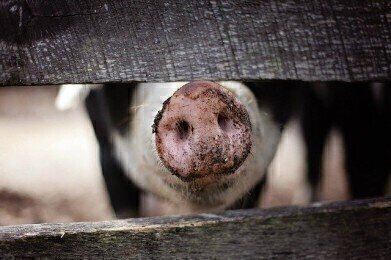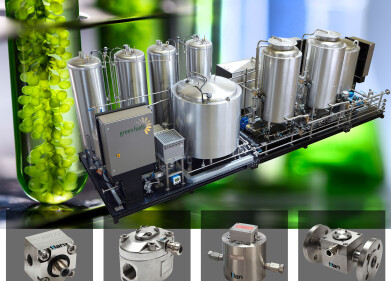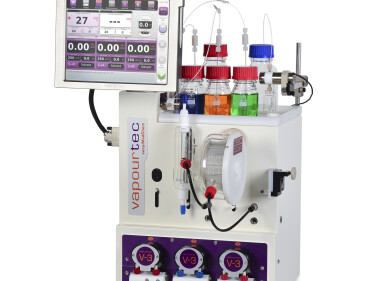Laboratory Products
How Does Our Sense of Smell Work?
Jul 07 2020
New research from the NYU Grossman School of Medicine offers insight into how mammalian brains sense and perceive smell. Working with laboratory mice, scientists sparked an artificial electrical signature in the olfactory bulb, a neural structure in the brain that processes smells. As the scent-simulating signal was synthetically created, the researchers were able to pinpoint what nerve signalling changes allowed the mice to identify and process the artificial scent.
Decoding the mechanics of the olfactory bulb
The ground-breaking study not only reveals how the brain senses and processes smells but explores its capacity to distinguish one unique smell from thousands of others. “Decoding how the brain tells apart odours is complicated, in part, because unlike with other senses such as vision, we do not yet know the most important aspects of individual smells,” explains Edmund Chong, MS, lead investigator of the study and a doctoral student at NYU Langone Health.
“In facial recognition, for example, the brain can recognise people based on visual cues, such as the eyes, even without seeing someone's nose and ears," says Chong. "But these distinguishing features, as recorded by the brain, have yet to be found for each smell."
The art of optogenetics
The findings were published in the journal Science and spotlight the olfactory bulb, which processes and sends scent-related data to the amygdala, orbitofrontal cortex and hippocampus. To investigate how the brain detects smells the team used genetically engineered mice whose neural cells could be activated via light.
Known as optogenetics, this technique allowed the team to train mice to recognise a specific electrical signal associated with a scent. Each signal was made up of six glomeruli, build-ups of neuropil that sit below the surface of the olfactory bulb and receive key scent-related nerve fibres. When mice identified the correct scent and pushed a lever they were rewarded with a drink of water. If mice pushed the level for a different electrical signal they weren’t rewarded.
Scent detection like “notes in a melody”
The team then changed the timing and characteristics of each electrical signal and analysed how these adjustments impacted its ability to detect the synthetic odour signal. They found that switching which glomeruli were activated first impacted a mouse’s ability to detect odour signals by up to 30%, suggesting that timing is extremely important. Chong compares the process to “notes in a melody” and says delays, mix ups and interruptions can have a negative impact on accuracy.
“Now that we have a model for breaking down the timing and order of glomeruli activation, we can examine the minimum number and kind of receptors needed by the olfactory bulb to identify a particular smell," says Dmitry Rinberg, PhD, senior investigator of the study and a neurobiologist at the NYU Langone Neuroscience Institute. "Our results identify for the first time a code for how the brain converts sensory information into perception of something, in this case an odour," says Rinberg. "This puts us closer to answering the longstanding question in our field of how the brain extracts sensory information to evoke behaviour."
From neuroscience to cancer research, accuracy is critical to any experiment. With insight from Antonietta Wallace on behalf of Thermo Fisher Scientific (UK) Ltd, ‘How Glass Vial Quality Affects Data Accuracy’ spotlights the importance of glass quality in analytical applications.
Digital Edition
Lab Asia 31.2 April 2024
April 2024
In This Edition Chromatography Articles - Approaches to troubleshooting an SPE method for the analysis of oligonucleotides (pt i) - High-precision liquid flow processes demand full fluidic c...
View all digital editions
Events
Apr 17 2024 Tokyo, Japan
Apr 22 2024 Marrakech, Morroco
Making Pharmaceuticals Exhibition & Conference
Apr 23 2024 Coventry, UK
Apr 23 2024 Kintex, South Korea
Apr 23 2024 Seoul, South Korea









.jpg)








